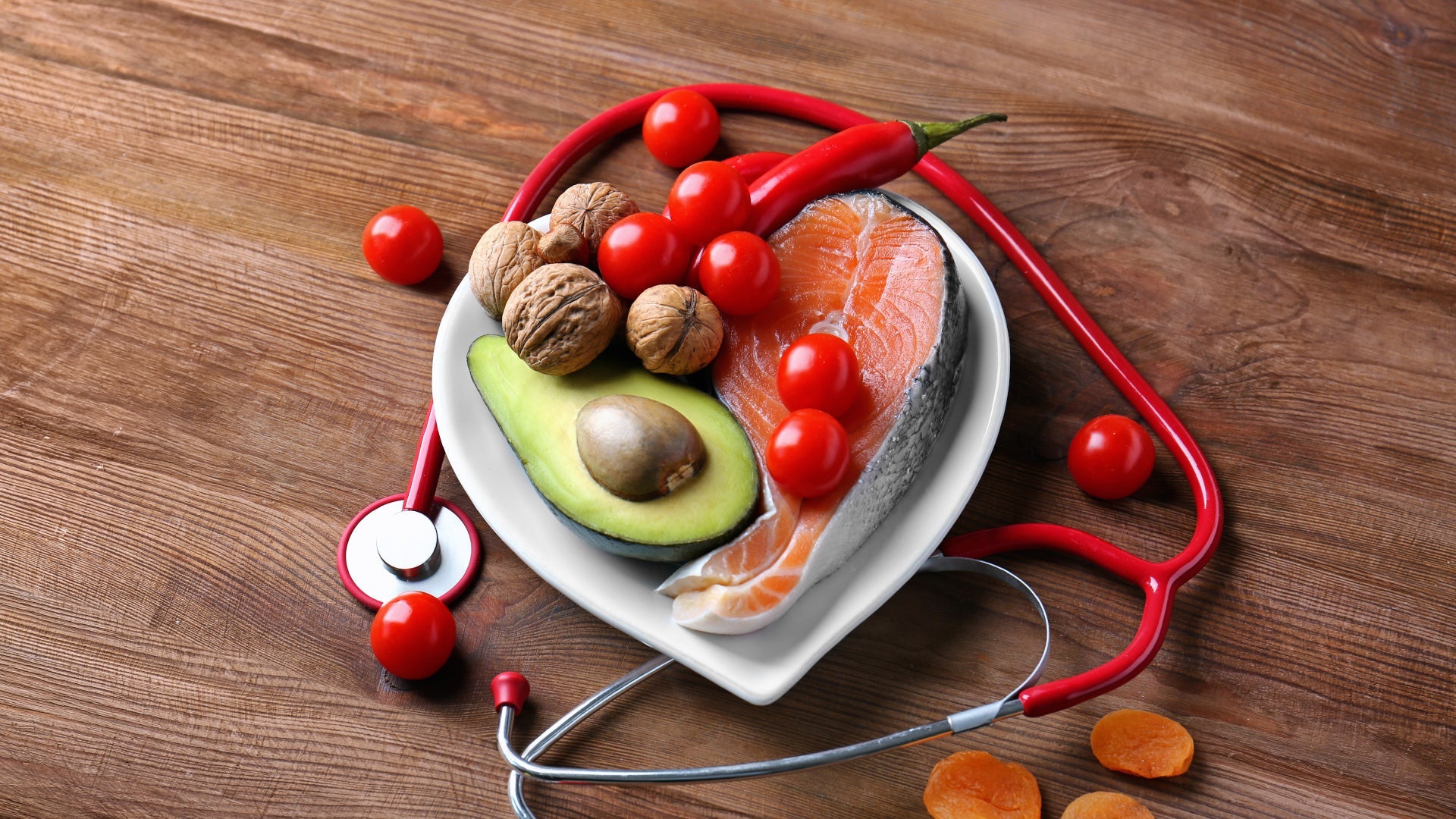Amino Acids for Pregnancy
 By: by Amino Science
By: by Amino Science

There are many nutrients you need more of when pregnant—folic acid, calcium, iron, etc.—because a whole new human being is being built from scratch: head, shoulders, knees, and toes. To build the body tissue and musculature of a brand new baby, pregnant women also need a lot of extra protein, including the amino acids contained within protein foods. Which amino acids for pregnancy should you be consuming, and where can they be found? The following article has the answers you're looking for.
Maternal Nutrition Needs
Here's a quick rundown of the extra nutrients needed during any common pregnancy and where to find them.
1. Folic Acid
Folic acid is included in prenatal vitamins for a reason: this B vitamin is necessary for preventing brain and spinal birth defects known as neural tube defects, and possibly heart defects and cleft palates as well. While you'll need to supplement with folic acid before and during pregnancy, there are fortified and enriched food sources of it too. Folic acid can be found in:
- Beans and lentils
- Breads
- Breakfast cereals
- Cornmeal and corn masa products (tortillas, taco shells, and pupusas)
- Flour
- Leafy green vegetables
- Orange juice
- Pasta
- White rice
2. Iron
Iron is the mineral used to make hemoglobin, which is the protein needed to carry oxygen throughout your body. Not only do you require more iron for the blood you're supplying to your growing baby, but you also need enough iron so that the baby can build a blood supply of his or her own. Iron can be found in:
- Beans, nuts, and dried fruits like raisins
- Certain cereals, breads, and pastas
- Leafy green vegetables
- Poultry, lean meat, and seafood
You may also want to consume more vitamin C (easily found in colorful citrus fruits), because vitamin C helps your body absorb the iron you consume, which could then help prevent anemia and low birthweight.
3. Calcium
Calcium is the mineral that helps build a brand new skeleton, and without a sufficient amount in your diet, your body will start dissolving your own bones to get the calcium it needs for your baby. That could lead to osteoporosis later in life, so an abundant supply of calcium is definitely required during pregnancy. You can find calcium in:
- Broccoli
- Dairy products like milk, cheese, and yogurt
- Kale
- Orange juice (if calcium has been added)
4. Vitamin D
Vitamin D is another aid in absorption, this time for calcium uptake. It's also important for proper immune functioning and for developing your baby's muscles, nerves, and teeth. You can find vitamin D in:
- Fatty fish (salmon, tuna, and mackerel)
- Vitamin D-enriched milk or cereal
5. DHA
DHA, or docosahexaenoic acid, is an omega-3 fatty acid critical for brain and eye development. If your prenatal vitamin does not contain DHA, ask your health care provider how best to supplement with it, and be sure to eat plenty of:
- Low mercury fish (salmon, herring, halibut, trout, and anchovies)
- DHA-enriched eggs
- Fortified beverages (orange juice and milk)
6. Iodine
Iodine is important for synthesizing hormones and forming your baby's nervous system (the spinal cord, nerves, and brain). Again, iodine isn't always included in prenatal vitamins, so be sure to eat plenty of:
- Dairy products like milk, yogurt, and cheese
- Enriched and fortified foods
- Fish
- Iodized salt
All of these nutrients play important roles in the development of a healthy baby, and certain amino acids are needed too.

Amino Acids for Pregnancy
The essential amino acids are the building blocks for new muscle growth in the body and vital nutrients for both mom and baby. The only way to get essential amino acids (including the branched-chain amino acids regularly consumed by bodybuilders) is to eat them, either via food or dietary supplement.
Your body can synthesize nonessential amino acids in-house and appreciates the extra nonessentials it gets from outside sources, but you may need more of them throughout the duration of a healthy, normal pregnancy. Which amino acids are the most important during pregnancy? Here they are, along with why they matter.
The Essentials
All of the essential amino acids (EAAs) are needed for protein synthesis and the health, development, growth, and survival of your baby, but the following amino acids play the most critical roles. If looking to boost your intake of amino acids while pregnant, be sure to do so with a balanced blend of EAAs.
Threonine
There are very few in-depth human studies on the amino acids required during human pregnancy. However, using an animal model of pigs to determine which amino acids are needed during each trimester of pregnancy, researchers have found that higher amounts of threonine are required during the first and third trimesters.
When pregnant, the mother's dietary protein intake needs to increase, resulting in the metabolism of amino acids into her and the baby's systems. A higher protein requirement is critical for fetal growth and development, and threonine specifically is necessary for forming tooth enamel, collagen, and elastin, important for supple skin, hair, and joints. Threonine can be found in:
- Beans and lentils
- Chicken and turkey
- Parmesan cheese
- Pork
- Pumpkin seeds
- Lean beef and lamb
- Salmon
- Shellfish
- Soy foods
Lysine
Lysine is an essential amino needed for building muscle, repairing tissue, regulating enzymes and hormones, and maintaining bone strength. Lysine can be consumed by eating:
- Eggs
- Fenugreek seed
- Fish (like cod and sardines)
- Parmesan cheese
- Red meat, pork, and poultry
- Soy products
- Spirulina
Isoleucine
This branched-chain amino acid is an isolated version of another branched-chain amino acid, leucine. Isoleucine is used in hormone production, wound healing, and blood sugar regulation, and also helps control energy levels in muscle tissue. Isoleucine can be consumed via:
- Cheese
- Eggs
- Lentils
- Meat, fish, and poultry
- Nuts and seeds
Tryptophan
Tryptophan plays one of its most important roles in the proper growth of newborn infants, and in utero as well. Tryptophan is also needed for regulating melatonin (for a healthy wake-sleep cycle) and for synthesizing serotonin (the "happy" hormone), so mother will appreciate having a good supply of it too. Get your tryptophan from:
- Chicken
- Cottage cheese
- Turkey
- Wheat germ
The Nonessentials
These nonessential amino acids help regulate immunity, gene expression, antioxidant responses, and neurological function during pregnancy.
Glutamine
The most abundant free amino acid in the body, glutamine is needed for gut functioning, immune support, wound healing, and cell energy fuel. Glutamine foods include:
- Beans
- Cabbage
- Eggs
- Meat
- Milk
- Nuts
- Seafood
Glutamate
Glutamate is a neurotransmitter needed for sending signals between our nerve cells and is important in learning and memory. Glutamate can be found in:
- Broccoli
- Cured meats and cheeses
- Grape juice
- Fish sauce
- Mushrooms
- Peas
- Ripe tomatoes
- Soy products
- Walnuts
Arginine
Arginine (also known as L-arginine) becomes nitric oxide in the body, which helps our blood vessels relax and open up, improving blood flow and circulation. Arginine can be found in:
- Legumes
- Meat
- Nuts and seeds
- Seaweed
Protein and Pregnancy
The protein turnover in early pregnancy has been found to be similar in pregnant and non-pregnant women, but a 15% and 25% absolute increase in protein synthesis happens in late pregnancy, during the second and third trimesters. Multiple studies have shown that increased protein intake during pregnancy results in a risk reduction for small-for-gestational age infants, meaning that protein may prevent intrauterine growth restriction and help build up the baby's body weight. Amino acid transport and uptake are interrupted in cases of intrauterine growth restriction, and put the baby at risk of low birthweight and growth retardation.
The above-mentioned amino acids are low during pregnancy, as they are being put to greater usage. High-protein foods could help replenish them and go far in ensuring a healthy pregnancy and steady growth and weight gain for the baby, according to the American Pregnancy Association.
Eating for Two
Low protein intake during pregnancy could be detrimental to the process, but so could an imbalanced amino acid intake. All of the amino acids are needed at some stage of pregnancy, with the above-listed aminos being the more critical ones during the late stages of pregnancy when the baby's body weight is growing rapidly. For this reason researchers insist that "amino acid intake recommendations during pregnancy should be gestational stage–specific," so consult with your doctor before taking any sort of supplement or vitamin to make sure that it's appropriate for the baby's stage of growth. Other than that be sure to eat well, as a healthy diet should help you get everything you and your baby need.

Up to 25% off Amino
Shop NowTAGS: benefits
Join the Community
Comments (0)
Most Craveable Recipes




 833-264-6620
833-264-6620



















